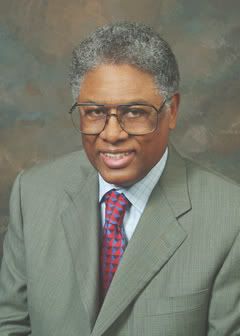 |
|
|
Anyone who has ever been in a Third World country, or even in a slum neighborhood at home, is likely to wonder why there can be such dire poverty among some people, while others are prospering. Both politicians and intellectuals have tended to have simple answers to that question, even if these simple answers have been different in different eras. A hundred years ago, the prevailing answer was that some people are innately and genetically inferior. Not only was this answer thundered from political platforms in redneck dialect by politicians in the Jim Crow South, the same message was delivered in cultured and lofty tones from academic podiums in the most prestigious colleges and universities across the country. Nor was this unique to the United States. In Britain, a study of high-achieving families by Francis Galton, a cousin of Charles Darwin, concluded that the reason for their achievements was genetic superiority. From there it was a short step to seeing various races as genetically superior and inferior. More ominously, Galton saw those who were inferior as a drag on society who should be eliminated. As often happens when a big idea seizes the imagination of the intelligentsia, their strongest argument is that there is no argument — that "science" has already proved what they believe. As Sir Francis Galton put it: "there exists a sentiment, for the most part quite unreasonable, against the gradual extinction of an inferior race." The idea that those with different views had only "sentiment" on their side, while he had science, was common among intellectuals on both sides of the Atlantic. Eugenics — a term Galton coined — became a crusading creed, and eugenics societies were set up by such stellar intellectuals as John Maynard Keynes, H.G. Wells and George Bernard Shaw in England. In the United States there were 376 college courses devoted to eugenics in American colleges and universities in 1928. By the end of the 20th century, the pendulum had swung to the opposite end of the spectrum. Now differences in achievements among classes, races or the sexes were seen as being a result of discriminatory treatment. And, again, as with the intelligentsia of the Progressive era, those with different views were dismissed with a word — often "racist" now, as compared to "sentimental" in the earlier period. But in neither era were views different from the crusading creed of the day seriously engaged. In our supposedly more enlightened time, it became dangerous even to express differing views on the subject on leading college and university campuses. A very fundamental question was seldom asked, in either the earlier or the later period: Was there ever any realistic reason to expect the same achievements among races, classes or other subdivisions of the human species? Could we really have expected Eskimos to have the same ability to grow pineapples as the people of Hawaii had? Could the Bedouins of the Sahara really know as much about fishing as the Polynesians of the Pacific? Could the people of the Himalayas have the same seafaring skills as people living in ports around the Mediterranean? On a more general level, could people living in isolated mountain valleys realistically be expected to develop their own intellectual potential as fully as people living in cities that were international crossroads of commerce, cultures and ideas from around the world? When the Spaniards discovered the Canary Islands in the 15th century, they found people of a Caucasian race living at a stone age level. Isolation and backwardness have gone together in many parts of the world, regardless of the race of the people involved. Historical happenstances — the fact that the Romans invaded Western Europe but not Eastern Europe, for example — left a legacy of written languages in Western Europe that people in Eastern Europe did not have until centuries later. But the innumerable factors affecting human achievements are not only complex and hard to untangle, they offer neither politicians nor intellectuals the opportunity to simply be on the side of the angels against the forces of evil. Factors which present no opportunity to star in a moral melodrama have often been ignored in favor of factors that do. |
|


